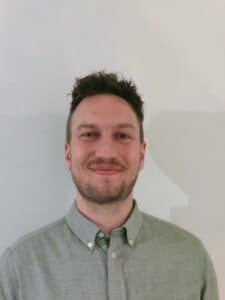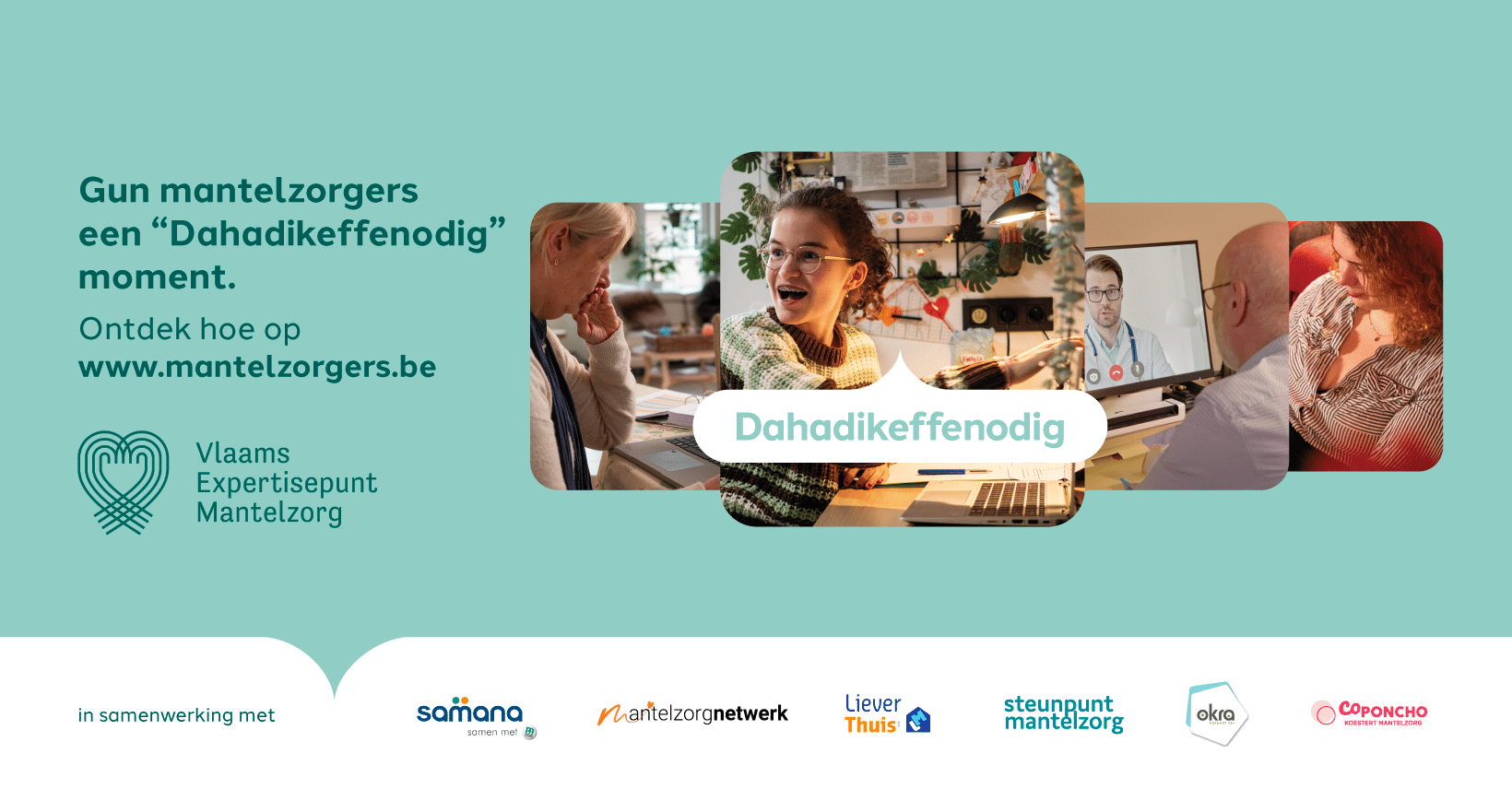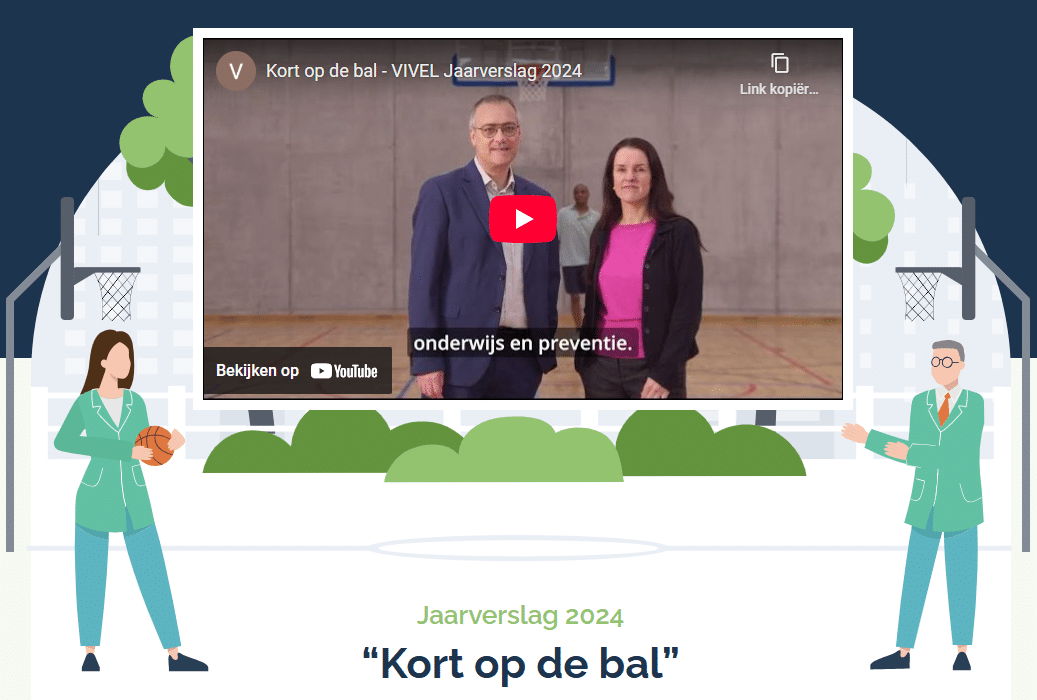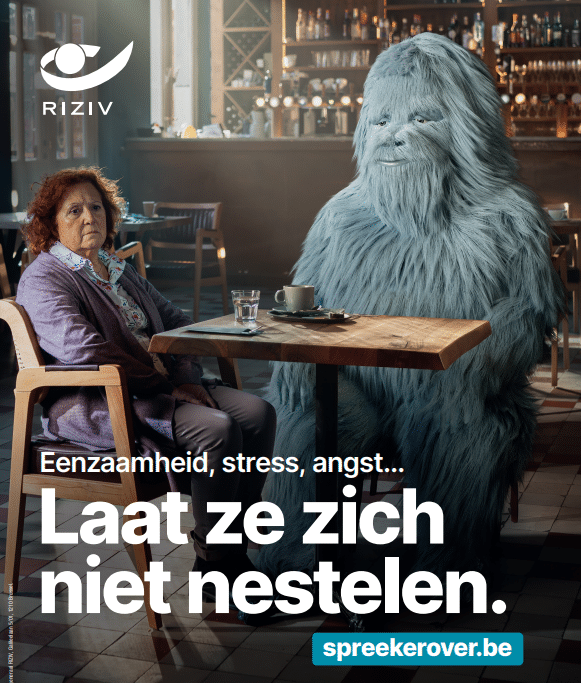Willy Heylen and Rutger Keuten on innovative care and welfare projects
In this unique double interview, Willy Heylen and Rutger Keuten share their insights on two exciting projects within the primary care landscape; "Born in Belgium" (BIB) and "OverHoop." These projects, active respectively in the Primary Care Zones (ELZ) Mechelen-Katelijne and Dender, highlight the commitment to collaboration and innovation in care for vulnerable groups
The projects under the microscope
ELZ Mechelen-Katelijne supports BIB (Born in Belgium) as a RIZIV project that provides a digital tool for professionals in the care of (vulnerable) pregnant women.
Willy Heylen says: "In other words, the tool is an online, shared platform that centralizes information about the psychosocial situation of the pregnant woman and makes it available to her aid and care providers from the (para)medical and social sector, in full compliance with the privacy legislation (GDPR). Psychosocial vulnerabilities are screened for during pregnancy so that the aid and care providers can then proactively and efficiently offer personalized care."

Rutger Keuten (ELZ Dender) describes "OverHoop" as an initiative aimed at strengthening resilience in children and youth in special circumstances, with support for front-line actors. "OverHoop" is a project of the King Baudouin Foundation that, commissioned by the Flemish government and with the help of professional and informal actors in Flanders and Brussels, is building toward greater prevention and a strengthened approach to developmental trauma and the profound events that precede it. At Eerstelijnszone Dender, we are fully committed within this project to strengthening resilience in children and young people growing up in special circumstances. Resilience refers to a person's ability, despite a difficult situation, to stand up or get back on their feet. Resilience is about being able to have sufficient supporting factors as a buffer against a (long-term) negative impact of a difficult situation."
What is common is that both projects emphasize the importance of all front-line professionals, and put collaboration first.
What do you want to realize with these projects?
Willy: "BIB focuses on early detection of psycho-social vulnerabilities. This principle fits perfectly into the vision of 'the first 1000 days' which states that the living conditions of a child during his/her first 1000 days are very decisive for the rest of his/her life. So gain in that period means gain in a whole lifetime. In addition, we want to promote cooperation between different actors through good and quick referrals and through common filing across partners. "
Willy: " BIB started in our ELZ in September 2022 with the creation of a steering committee. In spring 2023, cooperation agreements were made and formations were made. Then we were challenged to optimally anticipate the GDPR rules, which succeeded at the end of 2023 in collaboration with all partners. And so AZ Sint-Maarten started screenings starting in December. We want our project to reach as many front-line actors within health and welfare as possible. Because front-line professionals are so close to families, they are the actors of choice to detect special circumstances and can make a big difference for children, youth and parents by taking a resilience-promoting approach to them."
OverHoop focuses on supporting resilience in children and youth. "The project aims to specifically support first-line actors in this task, including by providing concrete tools and training. The Child Reflex and Family Reflex are guiding frameworks with regard to content. In time, it would be nice to find that the reluctance to act on this theme among first-line caregivers has decreased." The project runs for 1 year and was launched in December 2023. With this project we are aiming at a broad group of first-line actors as well as at children and young people in vulnerable situations. Afterwards, the intention is to foresee a further rollout in other front-line areas. Something that the KBS is currently looking at how this will be done in concrete terms." Explains Rutger.
The strength of both projects lies in the broad collaboration. Can you talk more about that?
BIB cooperates with a diversity of partners in the health and welfare sector. For example, the steering committee includes AZ Sint Maarten (Maternity service (gynecologists, midwives) and the social service), the District Health Center Wel&Wee, the Vroedvrouwenkring Dijle-Nete , Social Houses of Mechelen and Sint-Katelijne-Waver, Homes of the Child, OPkomst Team Mechelen, Kind&Gezin, CKG Bethlehem, CGG de Pont and PANGG0-18. BIB promotes cooperation between health care, welfare and local governments.
Willy frames this project: "As ELZ we have the explicit mission to promote integrated care in a triangle between 3 clusters: Health Care, Welfare and Local Authorities. Our 4th cluster: the Person with a Care and Support Need, must be the final beneficiary of this. This is why we explicitly support projects where multiple partners make cooperation agreements. BIB is pre-eminently a project that promotes cooperation between these 3 clusters. The BIB project intensifies and formalizes this cooperation. With all this, we are also betting on a sustainable project."
Eerstelijnszone Dender joins forces with, among others, the Flemish Expertise Center for Child Abuse (VECK) and Family Platform. The "Agentschap Opgroeien" and CGG Schelde Dender Waas are also important partners in this project. "Finally, there is VIVEL, they follow up on our project and offer support for a possible rollout in other first-line zones. "concludes Rutger.
"A lot of partners emphasize that the concrete actions are very inspiring. For partners not so familiar with the theme, an opportunity to create greater awareness of 'developmental trauma.' But above all, Overhoop creates connections between actors and new bridges between partners who currently did not know each other or knew each other less well. The common goal creates collaboration," Rutger makes his point.
Conditions for success
Willy explains that BIB is a dual tool that is taking shape with NIHDI funds. "The two strengths are, on the one hand, a scientifically based screening tool (which allows early detection and quick referral) and, on the other hand, a common file creation (where multiple care and welfare actors get access to a common file). There are sufficient resources to address bottlenecks appropriately, and since this is pioneering work, there are some things that can be improved. The tool already provides good early detection. But this is only useful if that detection can be followed up quickly by a referral to the most appropriate help. This help must be sufficiently available and accessible (e.g. waiting lists for psychological help can be an obstacle to the Care Pathway). And the tool should enable good and efficient communication between all actors involved. Professional secrecy and certainly medical confidentiality make it (rightly) difficult to share all info. Still, it should be investigated how essential/necessary information from health care can be shared with welfare partners (e.g. information on partner violence is often categorized under medical secrecy, so that it cannot be read by social workers of welfare partners offering Intra-Familial Violence). All this, of course, subject to explicit patient/client consent."
In the OverHoop project, Rutger speaks of a successful collaboration, if among care and aid providers in the first-line zone, the hesitation to act on this theme would decrease and, consequently, the knowledge of the theme has increased and is more widely supported by the actors already mentioned. "In addition, the project offers the possibility that current partners of the ELZ network can already become acquainted with the sector of growing up so that in this way, through the Overhoop project, collaborations can already be created or further developed."
Want to know more?
If you would like to know more about the Born in Belgium project in ELZ Mechelen-Katelijne contact Willy Heylen willy.heylen@elzmechelenkatelijne.be.
More information about the OverHoop project in ELZ Dender can be obtained from Rutger Keuten rutger.keuten@elzdender.be
Find out more at firstlinezone.be
Contact
Questions about a particular topic? Fill out the form below and contace us.


